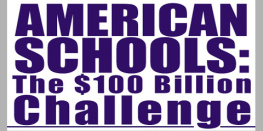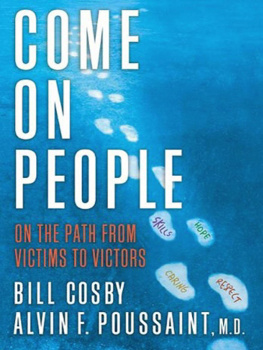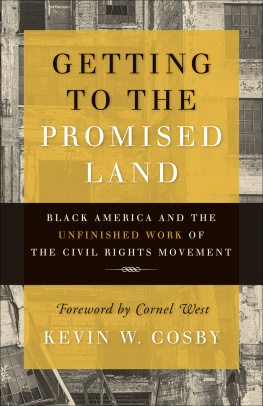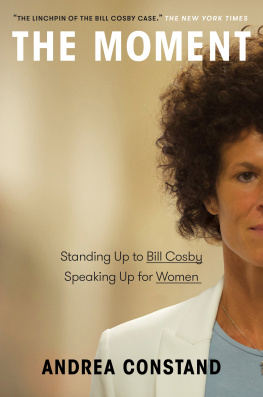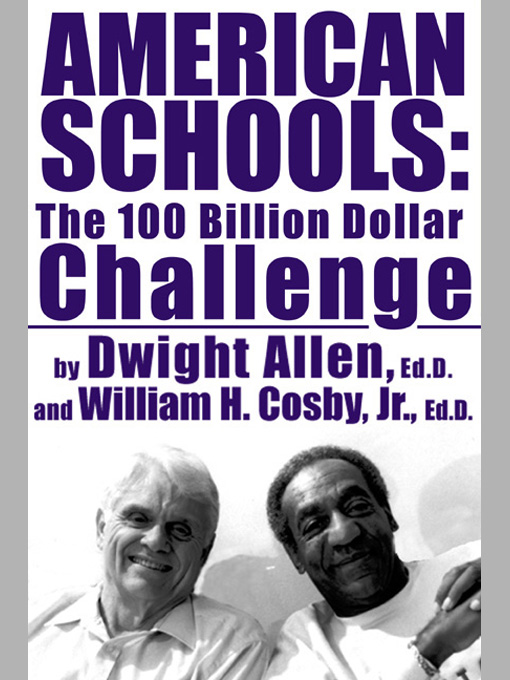AMERICAN SCHOOLS: THE $100 BILLION CHALLENGE. Copyright 2000 by Dwight Allen, Ed.D., and William H. Cosby, Jr., Ed.D. All rights reserved. No part of this book may be reproduced in any form by any electronic or mechanical means, including information storage or retrieval systems, without permission in writing from the publisher, except for a reviewer who may quote brief passages in a review. For information address Hachette Book Group, USA, 237 Park Avenue, New York, NY 10017.
ISBN 978-0-7595-2004-2
First eBook Edition: October 2000
Visit our Web site at www.HachetteBookGroupUSA.com.
Dedication
To all those who want to join in the quest for dot-com leadership in education, whether as leaders or supporters. They are the hidden treasures of the future of American education.
And to Ennis Cosby, who was on his way to becoming a dot-com leader in education, particularly in his chosen field of special education. He never got that chance. But in a very real sense he is responsible for this book: he brought us together at this transformational time, the stimulus for us to join forces to call for the transformation of education in America. His spirit is with us all, assisting in this unprecedented effort.
Dwight Allen and William H. Cosby, Jr.
Needed: Dot-com leadership for education.
Wanted? Not yet.
Thats why we wrote this book.
We need a whole new concept of educational leadership: young (and young in spirit), vigorous leaders who are encouraged to take risks and are given the resources and support to respond to new challenges as they emerge. One of the biggest problems in American education today is safe leadership. Educational leaders come from ranks of teachers schooled in obsolete teaching practices, conditioned by bureaucracy to fit in, and often indebted to the forces of nepotism, politics, and political correctness.
These leadership criteria are fatally flawed in times of rapid change. The leadership pool of educators is already weaker than we would likewitness all the complaints about mediocre teaching. It is amazing that we have as many dedicated, effective leaders as we do, given the selection bias, lack of incentives, and limited talent pool. The crisis in educational leadership has given rise to suggestions as wild as scrapping public education entirelyto create a free-market system built around private (even for-profit) schools. Home schooling is another desperate response for those fortunate few who can even consider it.
Public education can and must do better. Before we consider a new school system, let us find new leadership. First of all, we must encourage these leaders to take risks, because the largest risk of all is maintaining the status quo. Second, we should develop new participatory leadership patterns that involve teachers, students, and parents, and seek active community support. Current patterns of leadership have produced isolation and distrust among these groups.
Education needs dot-com leaders desperately. Dot-com leadership for education is the educational equivalent of the dot-com leadership in the business community, which has transformed not only commerce and industry but the basic fabric of America. The stereotype is that they are young, and most of them are likely to be, but dot-com leadership is a state of mind, not an age. Nor is dot-com leadership tied to any particular trainingeven training in technology, its progenitor. Dot-com leadership implies vision, risk-taking, caring, sharing, and enormous energy. Our colleague, Patrick OShea, who is just finishing his doctoral study at Old Dominion University and who helped us with research on this book, is an excellent example of an emerging dot-com leader in education.
Dot-com leadership can take shape by establishing the National Experimental School Administration () laid out in this proposal. Such a system would give America a laboratory in which to test and evaluate educational reforms and can become a clearinghouse for our knowledge about educational practice. NESA schools would become frontiers for educational change.
The challenge will be to open up the systemnot an easy task. But it starts with a vision of change, a vision of new potentials, with mechanisms that allow local communities to try them out.
The $100 Billion Challenge for American Education
We are asking America to invest $100 billion a year to transform our schools. One hundred billion dollars is $400 per year for every American. Its a significant amount of money to spend, but we cant afford not to spend it. Moreover, in a period of unparalleled prosperity, it is unacceptable that the wealthiest nation on earth is failing to educate 20 to 30 percent of its children.
The cold war is over. The immediate crisis is past. Yet we still spend $265 billion annually on our federal defense budget, more than $1,000 per year for every American, compared to $43 billion a year on education. The discrepancy is ironic, because education is also a matter of national security. The future of America rests on a well-educated citizenry, and we are increasingly recognizing that our security is jeopardized by school systems that fail to keep up with our national needs.
We are willing to spend more than $10 billion on a single hurricane. When a hurricane hits, FEMA, the Federal Emergency Management Administration, literally comes to the rescue. FEMA doesnt take over; it provides support. Sometimes a hurricane will highlight other problemsand as a result, new regulations and safety measures are drafted. Its the hurricane that redefines the needs, not FEMA. Similarly, the Federal Aviation Administration creates the rules for air safety and develops common markings for runways and regulations for managing air traffic. It doesnt build and manage the airports it supervises, but we rely on the FAA for our safetyknowing that it doesnt perform perfectly. There simply isnt an alternative.
The federal government needs to help with educationnot take it over, but help. And that help must be massive to make a dent in the challenge we face. Transformation of education wont be cheap, and it wont be without mistakes. Those mistakes will be costly, but we can and will learn from them. It will require courage and commitment. Waiting will only make problems worsemore costly and more traumatic. Each generation of students we sacrifice to obsolete, ineffective education will cost us financial and social capital, and increased resources will be needed to protect society from the consequences of our hesitationmore welfare, more prisons, more alienation and conflict.
Our challenge is to create a new and appropriate federal role for education in the new millennium. And while our politicians are talking about up to $800 billion in tax cuts, well tell you what we can achieve if we have the courage to invest $100 billion a year in our countrys educational future. What we are proposing is a bold, unprecedented journey to redefine education, its structure, its goals, and its staff. It will be a journey as long and as necessarily uncertain and transformative as the process of electrifying America was a century ago. We can open up entire new vistas of human potential. We can create a workforce capable of developing not only powerful new inventions but also the skills to use them.
The private sector and particularly the dot-com leaders need to rethink how they can engage American schools in new waysfrom providing systematic discounts to teachers for goods and services to providing systematic pro-bono support for schools. They can help build bridges between schools and communities through such initiatives as instituting personnel policies that make it possible for their employees to volunteer in the schools on company time and receive office phone calls from teachers.

